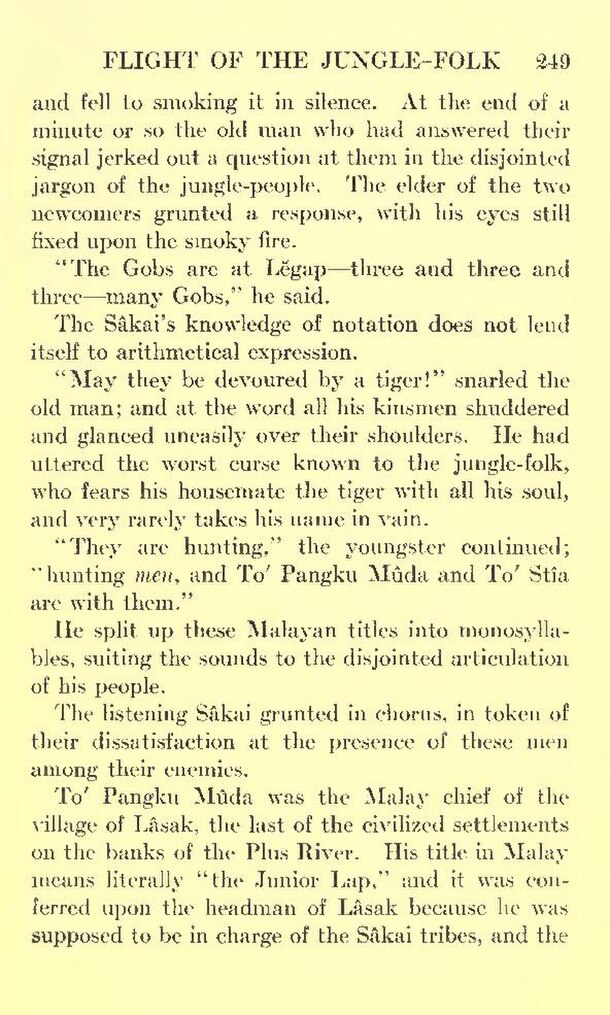and fell to smoking it in silence. At the end of a minute or so the old man who had answered their signal jerked out a question at them in the disjointed jargon of the jungle-people. The elder of the two newcomers grunted a response, with his eyes still fixed upon the sinoky fire.
"The Gobs are at Legap-three and three and three many Gobs," he said.
The Sâkai's knowledge of notation does not lend itself to arithmetical expression.
"May they be devoured by a tiger!" snarled the old man; and at the word all his kinsmen shuddered and glanced uneasily over their shoulders. He had uttered the worst curse known to the jungle-folk, who fears his housemate the tiger with all his soul, and very rarely takes his name in vain.
"They are hunting," the youngster continued; "hunting men, and To' Pangku Muda and To' Stia are with them."
He split up these Malayan titles into monosylla- bles, suiting the sounds to the disjointed articulation of his people.
The listening Sâkai grunted in chorus, in token of their dissatisfaction at the presence of these men among their enemies.
To' Pangku Muda was the Malay chief of the village of Lasak, the last of the civilized settlements on the banks of the Plus River. His title in Malay means literally "the Junior Lap," and it was con- ferred upon the headman of Lâsak because he was supposed to be in charge of the Sakai tribes, and the
